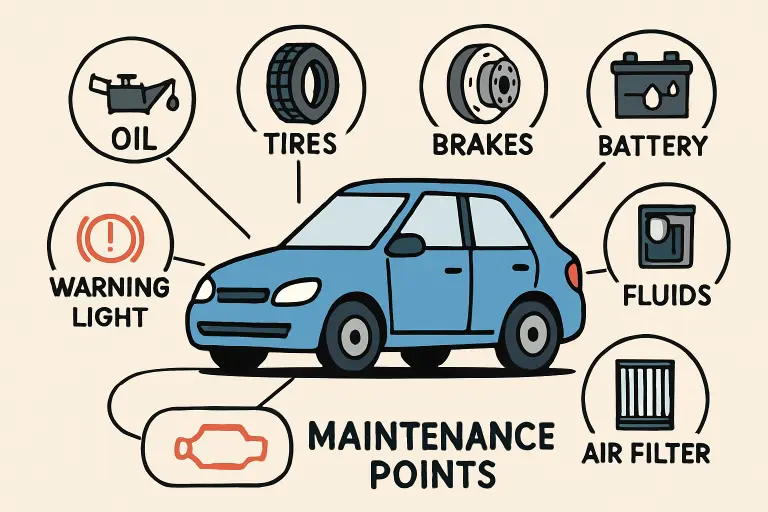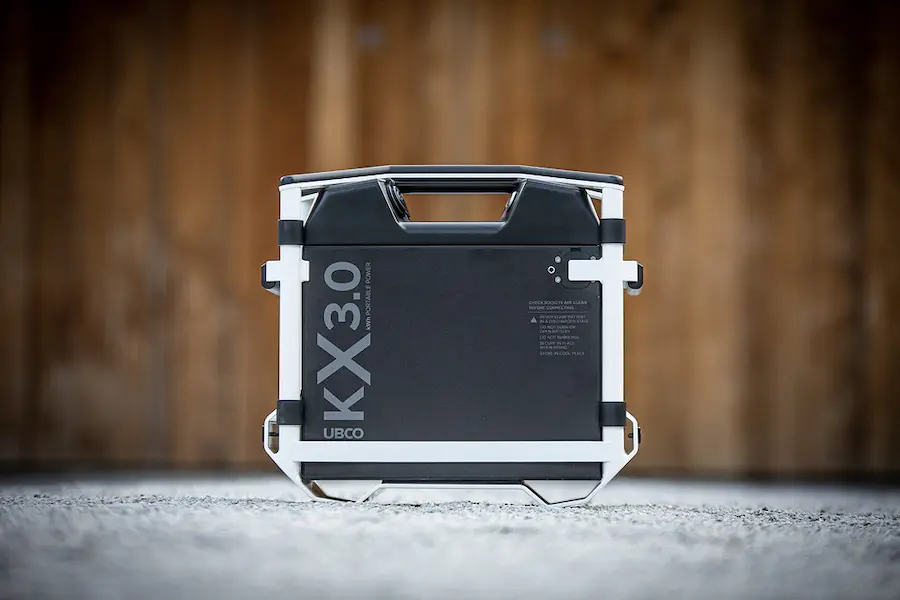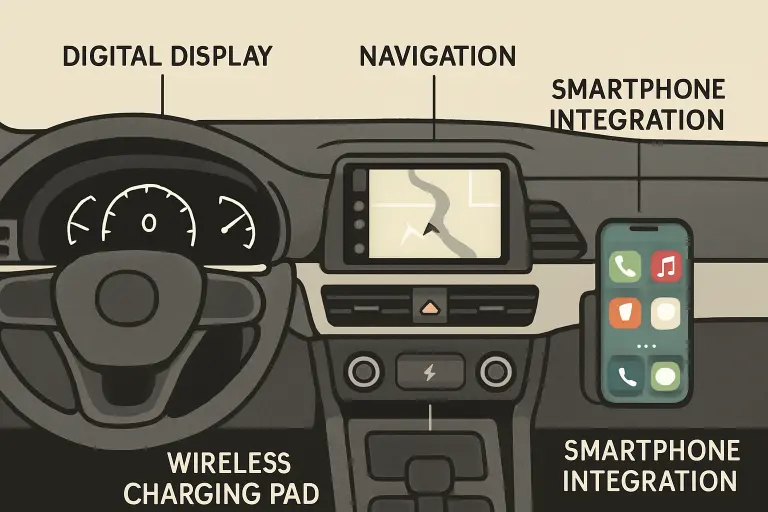Key Takeaways:
- Exploring the advancements and importance of contemporary dealership management systems.
- Understanding the advantages of open platforms and cloud-based systems for enhanced dealership operations.
- Analyzing the impact of security measures and regulatory compliance on the industry.
- Recognizing the transformative power of AI and future trends in dealership technology.
- Highlighting the necessity of staff training for effective implementation of new technological systems.
Table of Contents
Understanding Dealership Management Systems (DMS)
The foundations of an auto dealership hinge on its ability to efficiently manage vast amounts of data, from vehicle inventories to customer interactions. Dealership Management Systems (DMS) provide the robust infrastructure to streamline these processes. By integrating advanced technology, integrated dealer systems empower dealerships to amalgamate their operations into one cohesive, manageable platform. This innovation is more than a mere upgrade; it represents a pivotal shift in the way dealerships function, offering real-time insights that were previously inconceivable. However, integration is more than convenience; it is about survival in a digital-driven marketplace where traditional methods no longer suffice.
As the progression of technology continues to accelerate, dealership management has undergone a parallel evolution. Older systems, often characterized by siloed information architecture and clunky user interfaces, are making way for streamlined, intuitive platforms. These modern solutions alleviate operational headaches and open the door to enhanced sales techniques, customer service approaches, and inventory control methods. Yet, the digital divide grows wider for dealerships to embrace such advancements. Failing to implement modern DMS can lead to operational inefficiencies, lost sales opportunities, and a decline in customer satisfaction, ultimately jeopardizing the dealership’s market position and profitability.
The Rise of Open Platforms in the Automotive Industry
The adoption of open platforms propels the current digital transformation in the automotive industry. These systems eschew the limitations of classic proprietary software, offering a flexible and scalable structure that can seamlessly communicate with many third-party applications. Such interoperability is vital for dealerships looking to customize their technology stacks to meet their unique business requirements. Open platforms enable dealers to cherry-pick from various specialized tools, fostering an environment where innovation thrives. This ecosystem of interconnected applications drives efficiency, allowing for automatic data exchange, streamlined workflows, and significantly reduced manual errors.
Traditional closed systems require dealerships to rely on a single vendor for all their software needs, often resulting in costly and inflexible solutions. Open platforms turn this model on its head, stimulating a competitive marketplace where software vendors must continually refine and improve their offerings to stay relevant. The ability to integrate niche applications tailored to specific dealership needs translates into enhanced operational capacity and greater adaptability to shifting market demands. The effectiveness of open platforms is evidenced by countless case studies, including industry insights from Auto News, which document dealerships’ success stories that have harnessed open architecture’s power to drive significant growth and gain a competitive edge.
Key Features of Modern Dealership Management Technology
What defines a modern DMS is its suite of advanced features aimed at maximizing operational efficiency. At the center lies a robust data analytics engine, allowing dealers to scrutinize every element of their operations precisely. Sales trends, customer preferences, and service efficiencies are just some of the insights that can be gleaned from well-implemented DMS analytics. Integration with third-party applications is another cornerstone feature, extending the DMS’s reach and allowing for the seamless addition of new functionalities as needs evolve. These enhancements may include everything from online financing tools to digital marketing platforms, broadening the dealership’s capacity to attract and retain customers.
Customer Relationship Management (CRM) tools are revolutionized within these integrated systems, offering much more than a mere database of client contacts. Modern CRM solutions embedded within DMS software empower dealerships with predictive modeling, automated communication sequences, and advanced lead-tracking mechanisms. This results in sharper marketing campaigns, more personalized customer service, and superior customer retention rates. Such features lead to a markedly more dynamic engagement with clients, fostering stronger, longer-lasting relationships and creating a loyal customer base likely to return for future purchases and services.
Security and Compliance in Dealership Management
Alongside these advancements, modern DMS must grapple with the rising tide of data security concerns and regulatory compliance mandates. A breach of sensitive customer information inflicts reputational damage and can result in heavy fines and legal repercussions. Today’s DMS comes fortified with stringent security measures designed to ward off cyber threats and safeguard crucial dealership and customer data. Encryption protocols, multi-factor authentication, and continuous monitoring are standard elements of a secure DMS environment — essential defenses in an era where data breaches are all too common.
Compliance with industry regulations, such as those governing consumer privacy and financial transactions, further underscores the importance of a robust DMS. Dealerships must navigate a complex landscape of legal obligations, often varying by state or region. Advanced DMS handles this challenge by integrating compliance checks into every relevant process, from credit applications to service contracts. This not only ensures that dealerships operate within the bounds of the law but also instills confidence in customers that their interactions with the dealership are executed with integrity and in adherence to the highest standards of consumer protection.
The Impact of Cloud-Based Solutions on Dealership Operations
Embracing cloud-based DMS represents a paradigm shift in how dealerships conceptualize their operational strategies. Cloud solutions eliminate the need for extensive on-premises infrastructure, including lower IT costs, enhanced data recovery protocols, and the flexibility to access the system from any location with internet connectivity. Such functionality is invaluable for dealerships that value agility and seek to provide their team with the tools needed to perform optimally, regardless of where they are. The ability to update and maintain software remotely ensures that dealerships are always running the latest, most secure version of their DMS, reducing downtime and mitigating risk.
Many dealerships have found the transition to the cloud to be a turning point, providing them with a level of scalability previously unattainable. Real-time updates to inventory and customer databases across all dealership locations foster a cohesive, consistent experience for employees and customers. Additionally, cloud-based systems facilitate better collaboration between departments, breaking down the silos that often hinder communication and decision-making. Sharing the experiences of these transformative journeys, dealerships that have successfully leaped cloud systems provide compelling testimonials to those still on the fence.
Optimizing Inventory Management Through Technology
A crucial aspect of dealership operations is inventory management—knowing what vehicles are on hand, what’s on order, and what’s been sold. Advances in DMS technology have turned inventory management into a precise science. Integration with other dealership systems, such as sales platforms and financial software, automatically adjusts stock levels with every transaction. This ensures that dealerships can maintain the optimal inventory mix to meet consumer demand without the risk of overstocking or inventory deficits. The connection between well-managed inventory and customer satisfaction cannot be understated; clients expect quick and accurate information regarding vehicle availability, and technology delivers on this requirement.
Moreover, modern inventory tools are not only reactive but also predictive. They can forecast trends based on historical data, allowing dealerships to anticipate changes in consumer preferences and adjust their vehicle ordering accordingly. Innovative features such as 360-degree vehicle imagery and virtual showrooms further enrich the inventory management landscape, providing potential customers with immersive, informative online experiences that make the vehicle purchasing process more accessible and appealing. These advancements streamline dealership operations and play a significant role in enhancing sales tactics and improving the overall customer experience.
Enhancing Customer Experience through Technological Innovations
Today’s consumer expectations have evolved; they seek speed, transparency, and personalization in their business interactions, including automotive dealerships. Technology has become the conduit through which dealerships can meet and exceed these expectations. Innovations in dealership management systems have equipped businesses with tools for detailed customer profiling, allowing for highly targeted marketing efforts and communication strategies that resonate individually. The touchpoints in the customer journey, from initial inquiry to sale and beyond, are enriched with personalized attention, ensuring a customer feels valued and understood.
The post-purchase phase is equally critical to customer retention, a concept well understood by dealerships leveraging modern DMS capabilities. Scheduled service reminders, customized maintenance plans, and loyalty program management are examples of post-purchase engagement facilitated by DMS technology, creating a sense of continuous care and attention. These seemingly small touches can significantly impact a customer’s decision to return for their next vehicle purchase or recommend the dealership to friends and family, ultimately contributing to its reputation and success.
The Role of Artificial Intelligence in Dealership Management
Among the most groundbreaking technological advancements shaping the automotive industry today is Artificial Intelligence (AI). AI’s versatility means it can be applied in numerous areas of dealership management, from chatbots that provide instant customer service to predictive analytics that drive strategic decision-making. AI-powered tools are transforming mundane, repetitive tasks into automated processes, freeing staff to focus on the complex, human-centric aspects of the business. Machine learning algorithms aid in pricing strategies and market analysis and even help predict which vehicles will sell fastest based on intricate patterns within the data, offering unparalleled insights into operational efficiencies and customer behavior.
The potential of AI within the dealership environment is vast and still largely untapped. As dealerships become more attuned to the capabilities of AI, we can expect to see even more innovative applications emerge. By maintaining a pulse on industry trends through resources such as Forbes, which chronicles the integration of AI in the auto industry, dealerships can keep ahead of the curve and continue to offer cutting-edge services and solutions to their clientele.
Training and Support for Dealership Staff on New Systems
The migration to a new dealership management system has its challenges. To truly harness the power of advanced technology, staff must be proficient in its use. Therefore, investment in comprehensive training programs is non-negotiable for dealerships looking to transition seamlessly. Through hands-on training, e-learning modules, and ongoing support systems, dealerships can empower their employees with the knowledge and skills needed to get the most out of their new DMS. This educational approach not only aids in the technical aspects of the systems but also helps inculcate a culture of innovation and continuous improvement within the dealership workforce.
Such training is not a one-time event but an ongoing journey as technology evolves and new features are introduced. Dealerships prioritizing regular training updates and support mechanisms will find their staff more adaptable and confident in using the systems, leading to a more effective, efficient, and motivated team. The ripple effects of a well-trained squad are palpable, influencing everything from day-to-day operations to the overall customer experience. Dealerships that view staff training as an investment rather than an expense stand to gain significantly in the long term, both in terms of operational excellence and competitive positioning.
Future Trends and Innovations in Dealership Management Systems
The realm of dealership management systems is dynamic; it has the potential for further innovation and growth. As technology evolves, so too will the capabilities and applications of DMS. The future portends an industry landscape where data plays an even more critical role, influencing decisions from environmental impact assessments to virtual reality (VR) showrooms. Artificial intelligence will become even more sophisticated, and its integration into every facet of dealership operations will be even more seamless, providing enhanced predictive analytics and personalization options.
We are on the cusp of seeing a surge in green technology and sustainable practices within the DMS space as concerns over environmental impact become increasingly salient. Electric vehicle (EV) integration, energy-efficient operations, and waste reduction measures will likely become standard features of future systems. Dealerships anticipating these shifts and aligning their operations accordingly will differentiate them as forward-thinking leaders and contribute positively to the global push toward sustainability. The trajectory of technological advancement within the DMS arena promises to redefine the automotive dealership experience, delivering heightened levels of efficiency, customer satisfaction, and environmental consciousness.



























































































































































































































































































































































































































































































































































































































































































































































































































































































































































































































































































































































































































































0